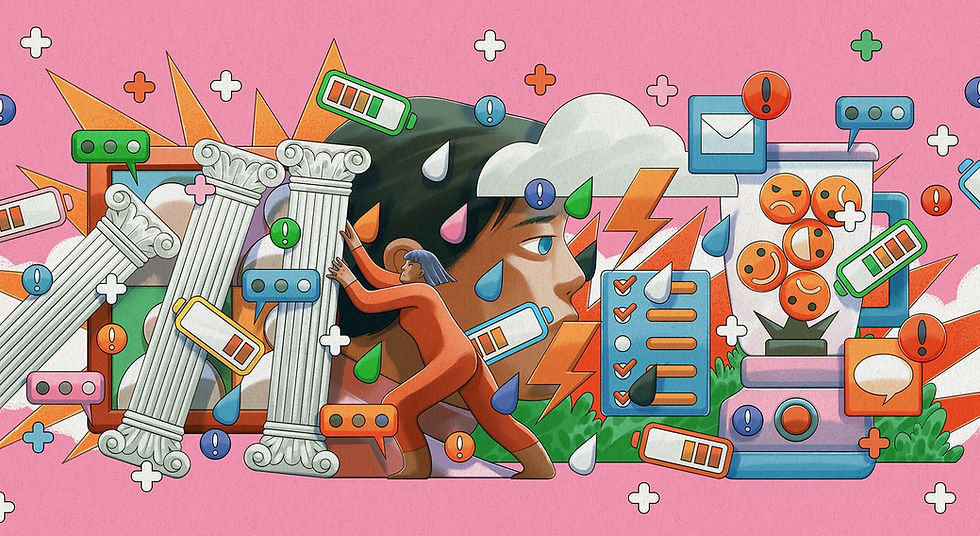Microstressed Out
- amandahayhoe
- Dec 17, 2023
- 2 min read
Updated: Dec 17, 2023

We hear all about the tolls of stress - the detriments it can have on our health, our happpiness, our relationships. But have you heard about microstress?
Microstress is far less obvious than it's more noticeable cousin, regular ol' stress. Harvard Business Review says that "Microstress is caused by difficult moments that we register as just another bump in the road — if we register them at all. Microstresses come at us so quickly, and we’re so conditioned to just working through them, that we barely recognize anything has happened. They tend to seem fleeting, simple to deal with, or too minor to hurt us for more than a second. And even when we do register microstress, we don’t necessarily think about its impact on our lives... And it is this "relentless accumulation of unnoticed small events — in passing moments — that (is) drastically affecting (our) well-being."
Aha! It makes so much sense when it's written out like that. And HBR took the research further (for all the details, read the linked article) and broke microstressors down into three broad categories:
1. Microstresses that drain your capacity to get things done. (eg. uncertainties about others' abilities)
2. Microstresses that deplete your emotional reserves. (eg. confrontational conversations)
3. Microstresses that challenge your identity. (eg. attacks on your self confidence)
So how do we address microstressors? According to HBR, "By removing them, rather than coping with them. From decades of social science research, we know that a negative interaction is up to five times more impactful than a positive one. That means finding ways to eliminate even just a few microstresses in your life can make a significant difference."
1. Push back on microstress in concrete, practical ways. (eg. learn how to say no to small asks)
2. Be attuned to the microstress you are causing others. (eg. if you snap at your partner, they'll likely snap back, causing you both more stress)
3. Rise above. (eg. learn to let some of your microstressors roll off your back)
Click HERE for the HBR article!

Amanda Hayhoe specializes in working with woman who want to build strong construction businesses via smart financials, authentic leadership and a balanced life. Learn more about Amanda’s story at amandahayhoe.com.



